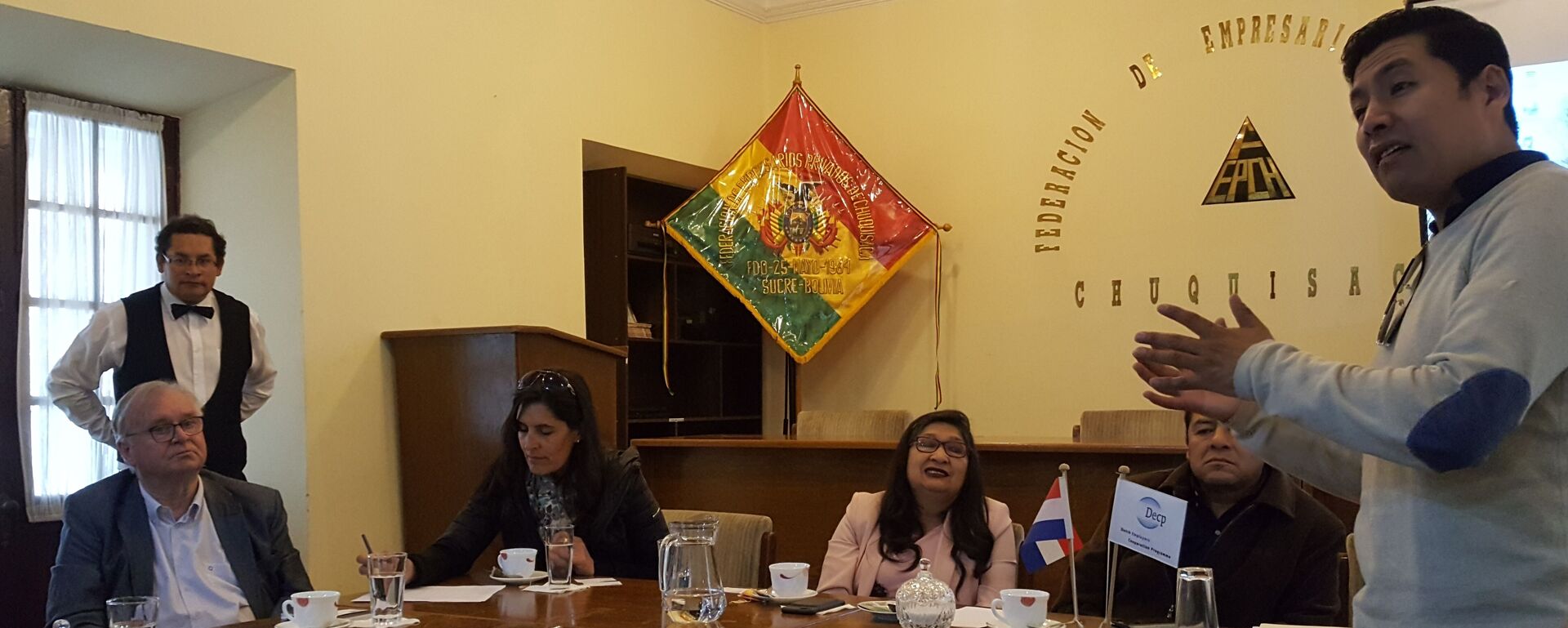

Federaciones de Empresarios Privados in Bolivia
Bolivia has about 11 million inhabitants and an enormous variety in landscape, climate, population and culture between the nine regions (departments). It is a lower middle income country with an economy that depends heavily on the export of mining products. The country experienced an economic growth during more than a decade, mainly thanks to the export of natural gas to Brasil and Argentina. Since 2006 Bolivia is governed by the left wing president Evo Morales of the MAS-party.
DECP supports the regional federation of employers of Cochabamba, Chuquisaca, Santa Cruz de la Sierra, Tarija, Potosí and La Paz, in coordination with the national APEX-organisation Confederación de Empresas Privadas de Bolivia (CEPB).
The federations of private entrepreneurs do not organise individual companies: their members are regional sector organisations. Each federation has a membership of eight to twenty cámaras (chambers). The fact that DECP works with the regional federation instead of the national APEX-organisation has historical reasons.
DECP has been active in Bolivia since 2009. In that year a strategic plan was developed by the Federación de Entidades Empresariales Privadas de Cochabamba. Other projects followed, like the start of the magazine Tejido empresarial. From 2011 on other federations followed, like Chuquisaca and the region La Paz.
DECP regularly organises cross cutting events that are attended by the general managers of the regional federations. They exchange experiences about how to run a business member organisation and new, joint projects are started. One of these projects is the publication of a guide containing all procedures that are relevant to entrepreneurs. It gives correct and actual information about for example how to start an enterprise, how to get a building license or how to export goods.
In 2017 DECP started to promote bipartite social dialogue, following the example of Peru. In Santa Cruz de la Sierra, the most prosperous and economically most dynamic part of Bolivia, we had talks with both employers and the trade unions. When we noted that employers and trade unions at the regional level were very interested in the idea of bipartite social dialogue, CNV Internationaal were invited to join and to support the workers’ organisations.
This resulted in a remarkable project in June 2018: the establishment of a Council for Industrial Safety and Health at Work by the employers of FEPSC and the trade unions that are united in the Central Obrera Departamental de Santa Cruz (COD). This is unique in Bolivia, but probably also throughout Latin America. The COD and the FEPSC are supported by CNV International and DECP, in close cooperation.
Later DECP and CNV Internationaal were able to bring together employers and workers in Cochabamba, Tarija and Chuquisaca also. Other regions might follow soon.
http://fepc.org.bo/web/ https://www.fepch.org/
http://www.fepsc.org.bo/ http://fept.org/
http://feplp.com.bo/ https://www.fepp.com.bo/